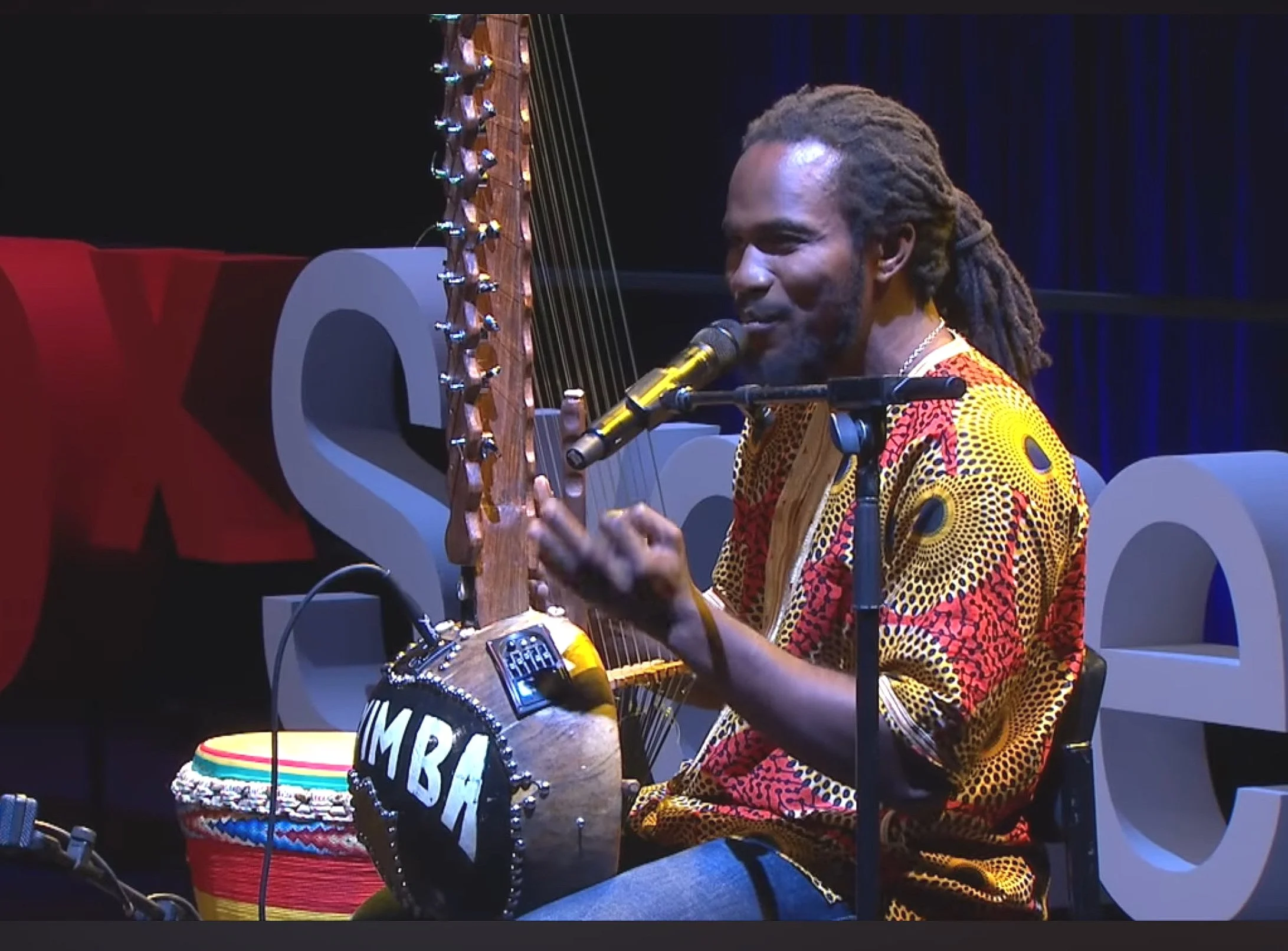For Busking Out Loud
Street musicians are referenced in Roman festivals and bazaars of the Qin dynasty. Medieval street musicians are prominently featured in art and lore. West African Griot storytellers in the 13th century performed on drums and harp-like instruments, engaging crowds in call response songs. Pick any city and century and you are sure to find musicians performing as a form of trade.
Origins of busking in modern American society date to the 1700s, where street performers were prevalent in the colonies. Medicine shows, which involved dubious doctors selling fake cures, became popular, often collaborating with entertainers to attract crowds. The importance of street performance was even recognized by the Founding Fathers, leading to the inclusion of protections for public demonstrations and song in the First Amendment.
George "Doc" Smith, proprietor of the King-K Medicine Show center with musicians early 1900’s
Despite legal protections, the 1800s saw a crackdown on busking in major cities through curfews and strict licensing. Many famous musicians started as street performers before recording technologies existed. Film, television, and radio led to the decline of busking as entertainment became more accessible via the airwaves.
Does busking have any place or purpose in today’s media rich environment? Perhaps it deserves a fresh look in an age where technology is outpacing our ability to think and be our authentic selves. Can likes and views supplant real experiences? Live performance is the very thing that connects a musician to the core purpose of their craft; performing for the sake of performing.
Five Reasons to Busk
Improve Performance Skills
Performing, like any job, has its redundancies. Busking provides an opportunity to figure out your stage presence. So much time is spent preparing as a musician that the potential for a transcendent experience for both performer and observer can easily get lost. Whether you are an introvert, extrovert or somewhere in between, knowing how to put a smile on a strangers face or elicit any positive feedback is a skill that will benefit you the rest of your life.
Learn to Persuade
Building an audience requires more than just an apt or energetic performance. It also requires you to understand, serve and cater to your audience. They may ask for the Beatles or Beethoven but you may have to respond with Bach or The Beach Boys based on your rerpetoire. The key takeaway is if you get asked for a song more than once, learn it for next time.
Eliminate Stagefright
Start by playing or practicing in a public place, away from crowds like under a tree in a park. This can help acclimate you to the concept of playing in public. Get used to people walking by and getting some eye contact. From there you can gradually increase your exposure to audiences by gravitating toward more crowded spaces.
Creat an Opportunity
Approach a business and offer to play out front to help drive traffic. Restaurants are always eager to convert local foot traffic. The key is to do it for free. Find out how and what drives traffic to the business. If it goes well then that may leads to an offer to perform a paid gig or residency inside the establishment. You may also get gig offers from passersby.
It’s Not Begging if it’s Good
Buskers offer a service that is a completely legitimate form of trade. Street performing is as old as the streets themselves. If you do have reservations about soliciting donations then simply put QR code for your favorite cause or charity and make it an act of good will. Otherwise, the payment is as optional as your ability to entertain.


